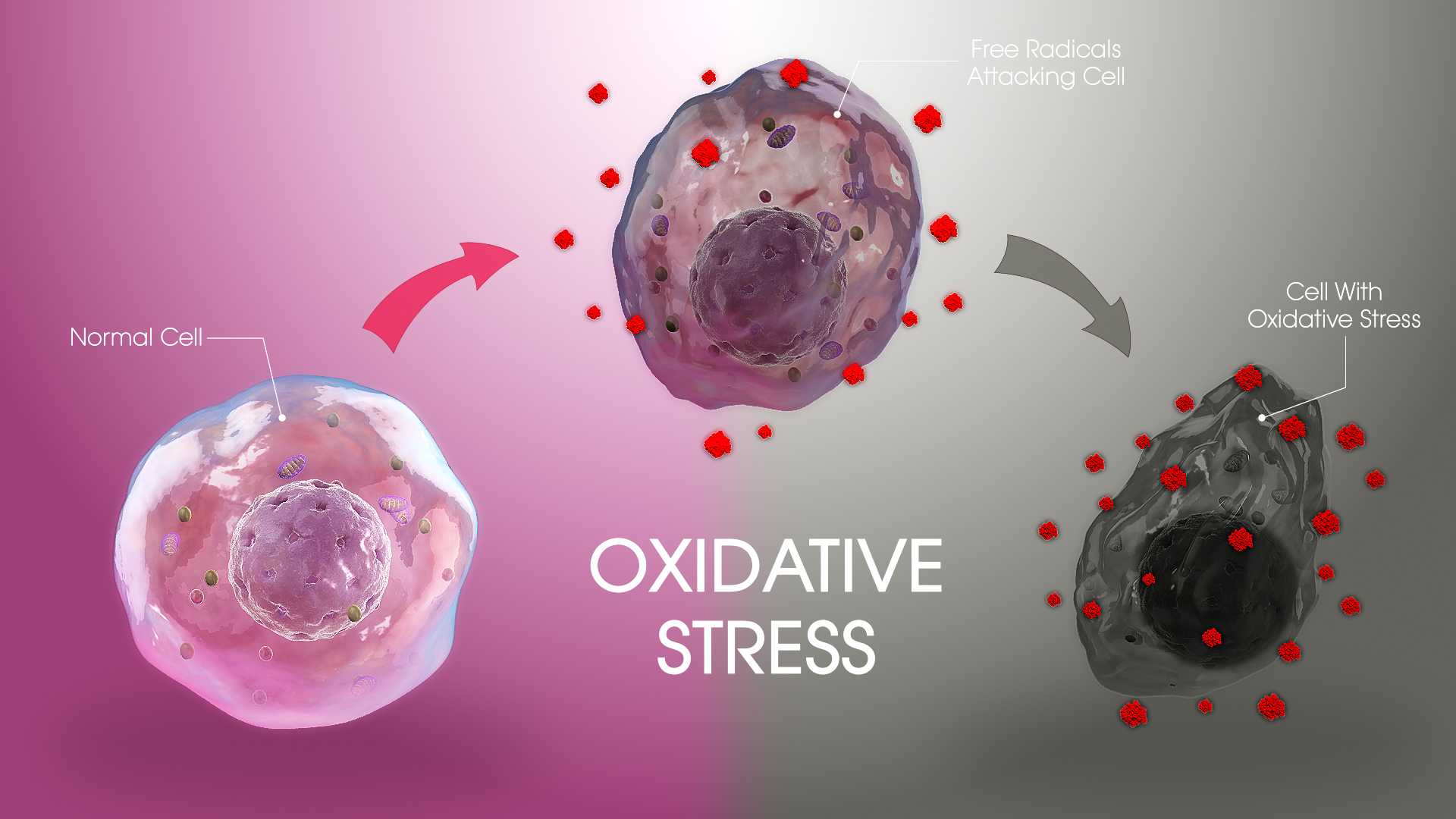Oxidative Stress and Aging: Understanding the Connection

As we age, our bodies undergo various biochemical changes, with oxidative stress playing a pivotal role in the aging process.
Understanding Oxidative Stress
Oxidative stress occurs when there’s an imbalance between free radicals (unstable molecules that can damage cells) and antioxidants in the body. Free radicals are generated through normal metabolic processes but can accumulate in response to environmental factors such as pollution, radiation, and diet. When the body cannot effectively neutralize these free radicals with antioxidants, it leads to oxidative stress.
Oxidative Stress and Its Impact on Aging
Oxidative stress contributes to aging and the development of age-related diseases by damaging cellular components such as DNA, proteins, and lipids. This damage accumulates over time, leading to:
- Cellular Senescence: Cells lose their ability to function and divide, contributing to the aging process and the decline in organ function.
- Inflammation: Chronic inflammation triggered by oxidative stress is a common pathway for many age-related diseases, including arthritis, Alzheimer’s disease, and cardiovascular disease.
- Mitochondrial Dysfunction: Mitochondria, the energy factories of cells, are particularly susceptible to oxidative damage. Impaired mitochondrial function reduces the energy available to cells, contributing to the fatigue and decreased physical capacity often seen in aging.
Strategies to Combat Oxidative Stress
Reducing oxidative stress can be a key strategy in slowing the aging process and reducing the risk of disease:
- Antioxidant-Rich Diet: Consuming foods high in antioxidants such as vitamins C and E, beta-carotene, and other phytonutrients can help balance free radicals. Fruits, vegetables, nuts, and seeds are excellent sources.
- Lifestyle Modifications: Avoiding smoking, reducing exposure to pollution, and minimizing ultraviolet light exposure can decrease free radical production.
- Regular Exercise: Exercise enhances the body’s antioxidant defense system and improves mitochondrial function, though it’s important to balance exercise intensity as excessive exercise can increase oxidative stress.
Understanding the link between oxidative stress and aging provides valuable insights into how lifestyle choices can influence the rate of aging and the onset of age-related diseases. By adopting strategies to reduce oxidative stress, individuals can promote healthier aging and enhance overall well-being.

